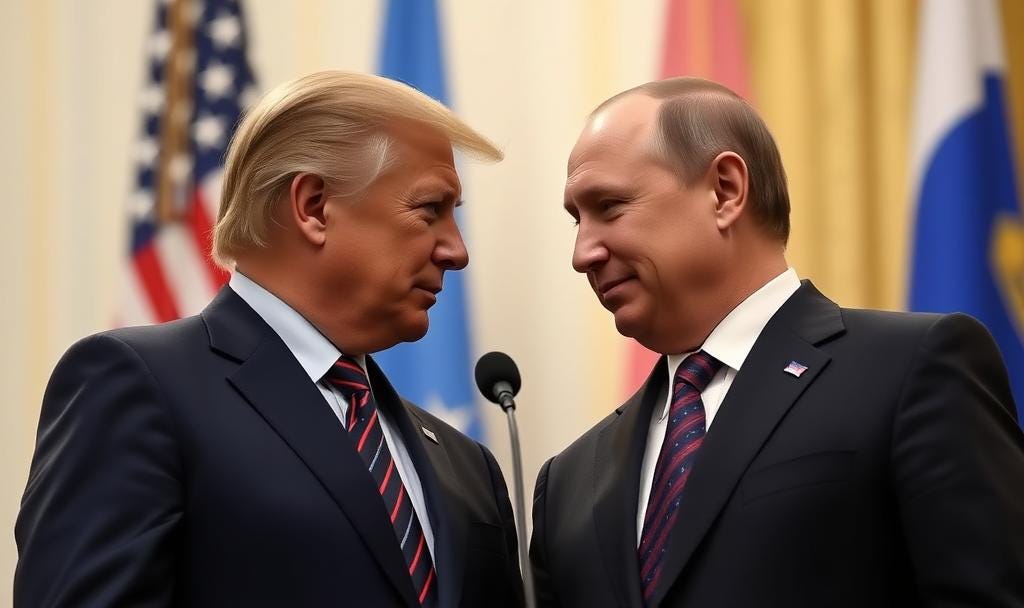US and Russia Initiate Ukraine Peace Talks in Riyadh, Excluding Kyiv and Sparking European Concerns
Senior officials from the United States and Russia met in Riyadh, Saudi Arabia on February 18, 2025, to discuss improving relations and finding a path to end the three-year-long war in Ukraine, marking the first high-level engagement since Russia's full-scale invasion.
Led by U.S. Secretary of State Marco Rubio and Russian Foreign Minister Sergey Lavrov, the talks signal a shift in U.S. policy under President Donald Trump, who has advocated for ending the conflict, but the exclusion of Ukrainian representatives has prompted alarm in Kyiv and among European allies. Discussions focused on establishing a framework for peace, restoring diplomatic ties, and exploring economic cooperation, with both sides agreeing to form teams to continue negotiations.
A Shift in US-Russia Relations
The meeting in Riyadh represents a significant departure from the previous administration's approach, which had largely avoided direct negotiations with Russia over the Ukraine conflict. President Trump's decision to engage with Putin and initiate these talks reflects his desire to resolve the situation. Still, it has also raised concerns about the potential for a deal that may not fully address Ukraine's interests.
"The meeting marked another significant step in President Trump's move to reverse three years of U.S. policy focused on isolating Russia over its war on Ukraine"6
Key Outcomes and Agreements
Following approximately five hours of discussions, the U.S. State Department described the talks as "an important step forward" toward achieving "enduring peace". Secretary of State Rubio stated that both sides agreed to establish a "consultation mechanism to address irritants to our bilateral relationship". This includes plans to restore embassy staffing, which had been reduced in recent years due to diplomatic tensions. While the exact details of the discussions remain confidential, it's understood that the talks also explored the possibility of removing barriers to trade and investment.
Ukraine and Europe Respond with Concern
The exclusion of Ukraine from these negotiations has generated considerable anxiety in Kyiv and among European leaders. Ukrainian President Volodymyr Zelenskyy has asserted that any agreements made without Ukraine's participation would be unacceptable, stating,
"No decisions about Ukraine without Ukraine...must have a seat at the table when decisions about Europe are being made".
European leaders have echoed these concerns, with France convening an emergency meeting with EU nations and the U.K. to coordinate their response. German Chancellor Olaf Scholz emphasized that "a dictated peace will therefore never find our support." Some fear Russia may be permitted to retain control over approximately 20% of Ukrainian territory.
"European leaders are scrambling for responses after Trump reached out to Russian President Vladimir Putin to end the war in Ukraine"
Potential Roadblocks and Future Negotiations
Despite the agreement to establish negotiating teams and address bilateral irritants, significant challenges remain. Russia has historically insisted that Ukraine relinquish control over substantial portions of its land and abandon its aspirations to join NATO, demands that Ukraine has previously rejected.
Public statements from Moscow also suggest a hardening of demands. A Russian foreign ministry spokesperson called for NATO to disavow the 2008 promise that Ukraine would join the alliance, and a deputy foreign minister stated the Kremlin was "categorically opposed" to European troops deploying to Ukraine.
The Path Forward
The talks in Riyadh have set the stage for further negotiations, potentially including a summit between Presidents Trump and Putin. However, the success of these efforts will hinge on addressing the concerns of Ukraine and its European allies, ensuring that any resolution respects Ukraine's sovereignty and security.
U.S. envoy Keith Kellogg is scheduled to visit Ukraine to provide reassurance and gather firsthand perspectives. As the negotiations progress, the international community will closely monitor whether this new diplomatic approach can lead to a lasting and equitable resolution to the conflict or further complicate the already complex geopolitical landscape.



